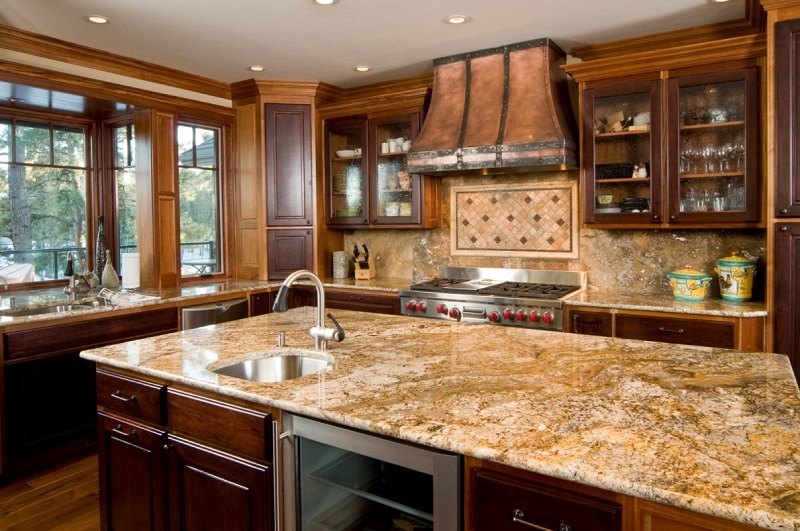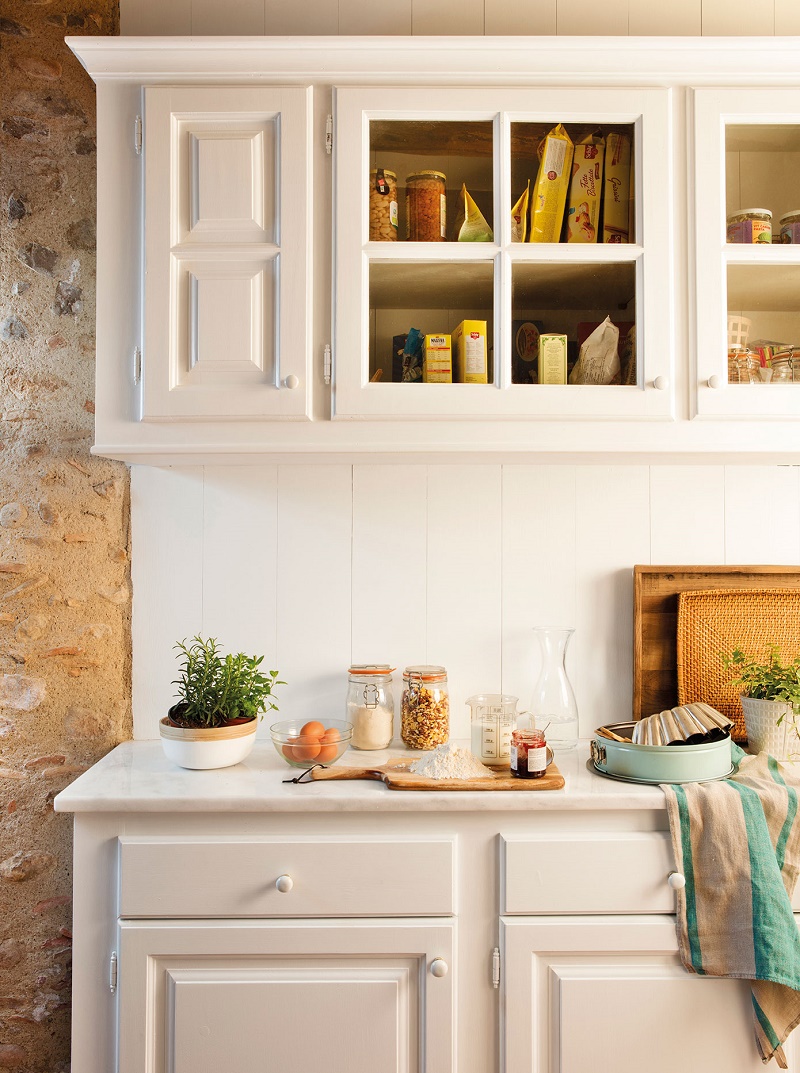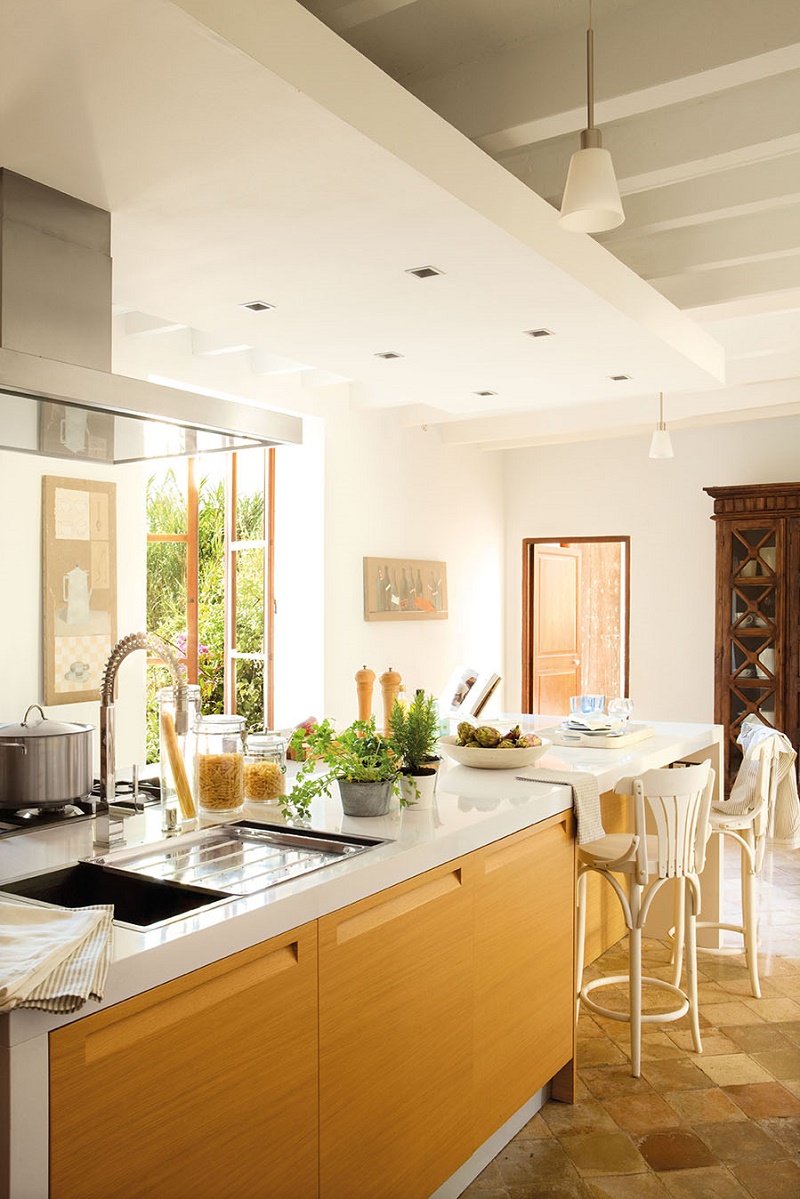
You want it tough, easy to clean … And pretty! And it is that a new countertop can change your kitchen completely. With which of these do you stay? Let’s discover how to choose a kitchen countertop.
It is one of the most used materials in kitchen countertops. It is a rock of natural origin, of great hardness, resistance, and duration, very suitable for countertops due to its dense and hardly porous composition. You have it in a great variety of colors, and it is ideal for kitchens with timeless aesthetics.
How to choose a kitchen countertop?

Marble
Although it is usually equated with granite, because it has also traditionally been used in kitchen countertops, the truth is that it presents important differences, especially from hardness. Marble is less dense and much more porous than granite. It is perfect for kitchens with a retro point, although there are varieties of tones for all types of kitchens.
Silestone
This compact material developed by the firm Cosentino is composed of 94% natural quartz, responsible for its great hardness and strength (guaranteed for 25 years). Its non-porous and stain-resistant surface combines with a wide range of colors and designs – smooth, veined, with fine or coarse grain.
From Corian
The Corian, manufactured by Dupont, was a pioneer of the increasingly popular compact synthetic materials. Its great advantage is its ability to be molded, which allows integrating the sink into the countertop without visible joints. For the same reason, high temperatures do not resist well.
Stainless steel
It is the material used in professional kitchens and, for that reason, will give an ‘industrial’ dimension to yours. In addition to being resistant, hygienic and easy to clean.
What types of countertops are there?
The natural stone countertops remain a popular choice because they combine beauty, strength and good value for money.
If you prefer more original finishes and improved features, you have next- generation composites that are unbeatable regarding hardness and durability. The compact materials are Silestone, Corian, Neolith …
And the stainless steel? He is the king of professional kitchens.
1) Granite, very resistant and ‘for life’

Granite is a rock of natural origin of high density, impermeable and hardly porous, all of which prevents the penetration of liquids and stains, not to mention that it is very resistant to high temperatures.
The granite can be polished so that it will look as good as the first day, so it can be said that it is a countertop ‘ for life.’
Its price is also a factor in its favor, since you have countertops of national granite from 220 dollars/m, although those of import and the most expensive varieties can double and triple that price.
Finally, although the range of colors is more limited than in the case of synthetic products, you should know that, beyond the typical mottled, there are granites of striking designs, with marked veins and deep tones. Firms such as Levantine Group have a wide catalog of references.
2) Marble returns

Although it is waterproof, resistant and it ages with elegance when dealing with a noble material, it is not less true that it is a limestone less dense and much more porous than granite, which is its main drawback:
Fats and acid substances, such as lemon or vinegar, can cause stains. These countertops accept several polishes throughout their useful life. In any case, the main argument of marble, which is again fashionable, is the beauty and elegance that its veins give it – more or less marked according to the variety – as well as the different colors in which we can find it. There is a great variety of marbles, and their price depends on the class and its origin. The national white marble is one of the most economical: you have it from 150-180 dollars/m.
3) Silestone, a new classic

You find it in many colors and can even be combined with textures ranging from polished high gloss to matt, or those with the rough touch.
Despite its excellent performance – some varieties incorporate antibacterial treatment throughout the thickness of the material – it must be borne in mind that its resistance to temperature is lower than that of natural stone, so it is necessary to avoid supporting hot containers.
The final price of a Silestone countertop will depend on the model, the thickness of the material and the finishes applied. It can be placed on an average of about 300 dollars/m (with 2 cm thickness).
4) Corian: make it as you want

The Corian is composed of 1/3 of acrylic resins and 2/3 of minerals and pigments, which makes it hygienic, non-porous and able to create continuous surfaces, even with integrated sinks.
Its great argument is that it can be molded and form curved surfaces without joints. It works easily and supports engravings and reliefs. This, together with its more than 100 colors, makes it a very versatile material.
In any case, its hardness is less than that of granite or quartz and can be deformed by high temperatures and stain. To his credit, it was that although it scratches with relative ease, it can also be repaired simply. This gives it a long service life.
You may also like Design considerations for commercial kitchens

